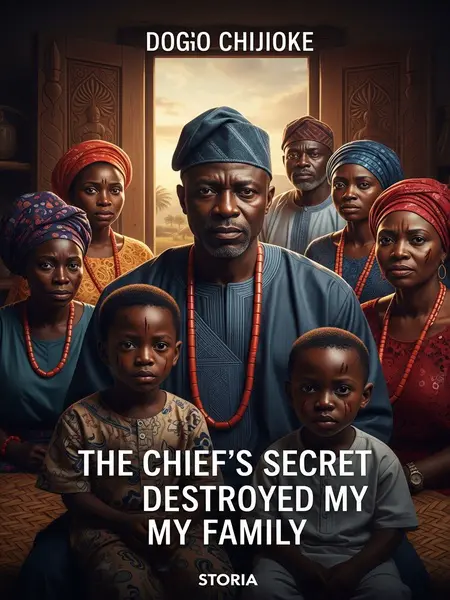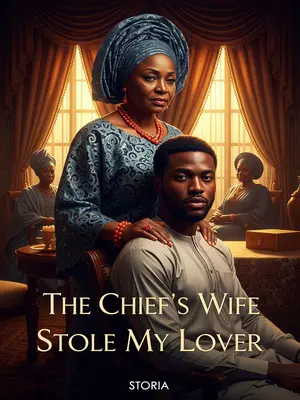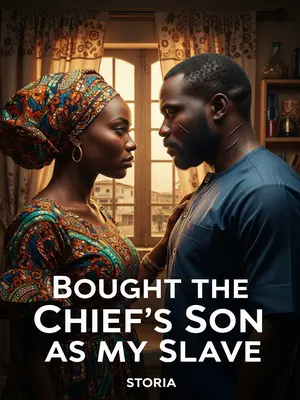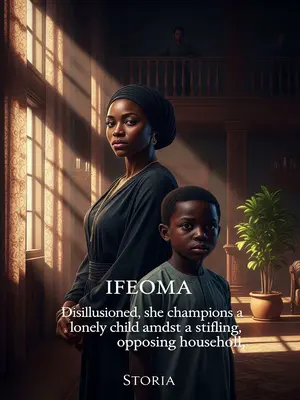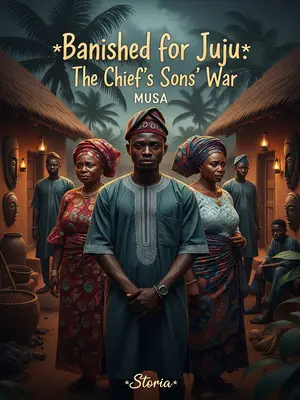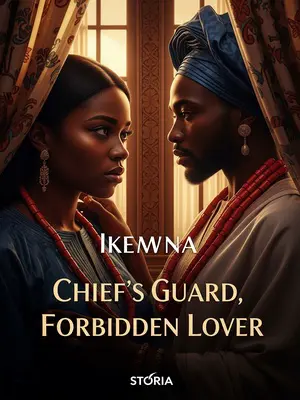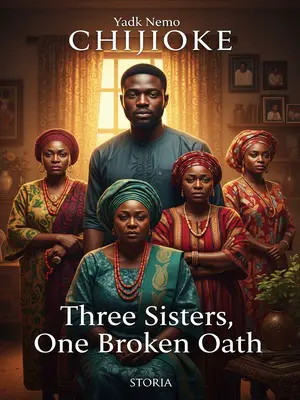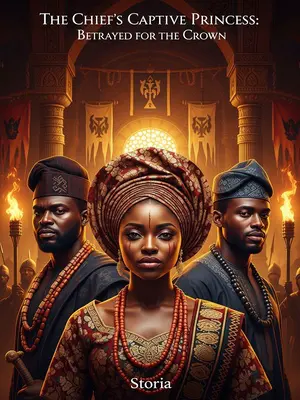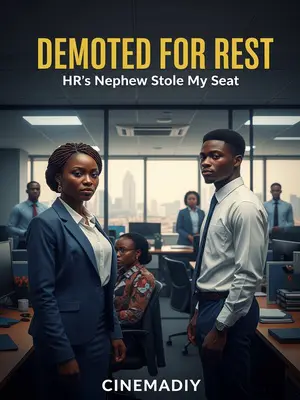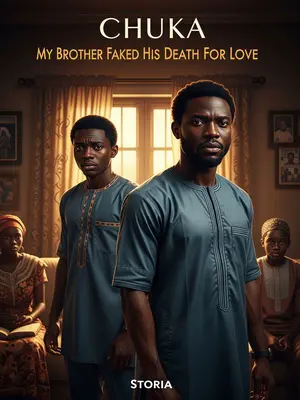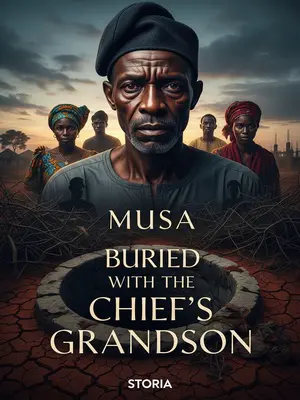Chapter 1: Thunder for the Chief’s Palace
Nigeria finally abolished the system of hereditary native chiefs and brought everywhere under direct federal rule only during General Musa’s time. Even Oba Adeyemi, compared to him, na just like torchlight for afternoon sun—who dey use am? E no reach at all. General Musa enter room, everywhere quiet—na that kind power.
For those who witnessed the change, it was like the day harmattan breeze suddenly stop and heat grip everywhere—no warning, no mercy. The announcement land for market like thunder—women drop basket, men pause mid-palmwine. People still talk about how, before General Musa, even small towns like Okpokwu, where the yam market dey burst every Saturday, or Otuoke, still answered to one chief or another, their words heavier than market price for yam. In those days, a chief’s nod could bring rain or send a stubborn debtor packing from family land.
When dem establish the Federal Republic of Nigeria, many native chiefs still dey all over the country. The fact say these chieftaincy systems survive two big campaigns to wipe them out for colonial and early independence time just show how strong dem be. But General just use one sharp move scatter all of them—dem disappear like morning dew for Jos—sun just touch am, e vanish.
People for beer parlours and roadside buka still dey gist, say that move shock everybody, even old men wey never fear government before. Gist dey fly as suya sizzle for fire. One old man for corner shout, "Na wa o! Dem just wipe history like say na blackboard!" It was as if the ancestors themselves looked down and said, "E don do."
The General’s political sense and strategy, those native chiefs no fit withstand am at all.
As dem talk for Sabongari: "Who go drag land with person wey sabi government inside-out? Na so dem pack their load jejely." Some say the chiefs even try to bribe the General with gifts—goats, wrappers, and bags of rice—but nothing work.
To really understand how the General take do am, you first need to sabi how dem dey abolish the native chief system and bring everywhere under direct rule for Nigerian history. For that time, na the best way for Nigeria to expand and hold land—plenty people don pay heavy price for am since.
The elders in village square always remind the young ones that every plot of ground, every road, every river bend, carry the story of struggle and wahala. Sometimes, the tale gets retold during festival evenings when palm wine is sweet and the moon big above the compound. Children chase fireflies, elders sip palmwine, stories dey fly like mosquito.
After the first unification under the old kingdoms, all the rulers wey come after am dey always meet one wahala: no matter how dem fight, new groups of "rebels" go always show for the edge of the territory.
Even children wey dey hear these stories for moonlight play go wonder how come fight never finish for their grandpapa time. Some say those rebels dey move like spirits—today here, tomorrow for another side of the bush.
These rebels na true outsiders, their society no too developed, dem no get serious work, but dem strong and sabi fight well well. So, the central rulers go gather their peaceful farmers, train them, and use them as army to fight these native groups wey dey disturb.
Elders go warn, "No be say we like wahala, but if we no defend ourselves, na so dem go take sweep us throway." (Aiye yi o le—this world no easy). Sometimes, the call to arms come during dry season, when work for farm don reduce, and young men see it as way to prove manhood.
But this kind of rule dey cost. Nigeria big, so too many places dey for these frontier people to show face. For north, you get the nomadic people wey dey always come, but new groups go still dey rise for east, south, and west. The rulers for central region no fit ever rest, dem always dey on guard.
Drummers beat talking drum—ka ka ka—warning sound wey make even goats run. Even palace drummers go beat warning tunes when any sign of trouble show. Some rulers no dey even sleep for their proper chamber; dem dey rotate for different huts to avoid ambush.
Even with all these efforts, sometimes these frontier groups go still overthrow the main rulers—like what happen for the Fulani Jihad, the end of Oyo, and the interregnum period.
Old women still sing folk songs about lost cities, about kings who vanished overnight, and about the burning of royal stools. These memories stay alive, shaping the fear and courage of every new generation.
Because of this, all the scholars and elders for different kingdoms dey always rack their head to find permanent solution to stop these endless frontier groups.
Sometimes, these elders dey sit under the iroko tree, chewing kola and speaking in parables. "You no go use sieve fetch water," one go say. But solution no easy.
Na for the time of the Garba Kingdom hope first show small.
May the land hear good news—amin, ase. For that period, market women started to gossip that maybe, just maybe, Garba go fit settle things. Even the town crier’s bell had a hopeful tone when he shout the king’s message for evening.
Why e come be Garba Kingdom the thing gree happen?
Some people say na prayer, others say na sense. But truly, Garba time na when people begin believe that change fit really happen, that maybe peace fit last pass mango season.
The answer be say, Garba na the first time non-indigene people rule everywhere together.
People wey never greet before dey chop from same pot of egusi, laugh dey sweet their belle. For village festivals, you go see people from different tongue wear the same colours, dance the same steps, even if na just for one evening.
Before Garba, na the indigenes dey rule central region. Under their thinking, dem dey separate "our people" from "outsider," so all these other groups dey feel like outsider. The indigenes no send them, dem too no send indigenes. Both sides dey see themselves as enemy—no way for peace.
Children grow up knowing which footpath belong to who. Dem dey mark am with old calabash or broken pot—cross am, wahala go land. If you cross by mistake, dem fit flog you or even chase you with masquerade. Masked spirits with raffia skirts and cowries, chasing small pikin for fun.
But the northern rulers wey start Garba Kingdom open up, treat non-indigene people better. With that kind mind, dem develop the native chief system—give minority groups plenty freedom to rule their place, build am on top the loose rein system wey old Benin and Kanem-Bornu use before.
Elders go say, "No be today we start dey manage ourselves. We sabi how to give space, so make everybody chop their soup in peace."
Loose rein na like neighbor borrow you salt, native chief na like landlord collect rent every market day. (Note: The native chief and loose rein system no be the same. For loose rein, na the local people dey pick their own leaders, dem just dey pay tribute sometimes, no regular wahala. But for native chief, na the main kingdom go appoint the chiefs, and dem must dey pay tribute and send soldiers when dem call am.)
That difference dey important. Na the difference between borrowing wrapper for party and being forced to wear am for every family meeting, whether you like am or not.
After Garba start, dem send district supervisors go everywhere to be oga for military and government. For indigene areas, supervisors run the government; for minority areas, Garba go appoint local chiefs, but still keep one eye on them through the supervisors.
Sometimes, these supervisors dey act like tax collectors—serious, no-nonsense people. Market women fear them pass council police. If supervisor waka enter market, even stubborn goat go calm down.
History show say, during Garba Kingdom, dem set up almost 300 native chief offices for the country. This one better pass the loose rein system—central court fit control the chiefs from far, but dem still allow chiefs to run their area as dem like, as long as dem loyal.
Some people for village square go clap when dem hear this arrangement. "At least, dem never come carry our yams," they’ll say. But everybody know say as long as you loyal, you go see peace.
Because of this native chief system, minority people no dey rebel anyhow for Garba time. The court now fit focus on stopping indigenes from rebelling.
Folk tales begin to change, with songs praising chiefs who kept peace, who no allow war scatter marriages or stop planting season.
When Oba Olagunju overthrow Garba, e sharp eye see say native chief system dey help keep everywhere calm.
Some say Olagunju even send messengers to spy, to check if the chiefs dey loyal. Others say he just get sharp sense, like person wey fit catch lizard with bare hand.
Make we no forget say Oba Olagunju come from poor background, so him dey always do wetin go work. As e see say native chief system dey help, e just forget the old way of separating indigenes and non-indigenes, carry native chief system enter Olagunju dynasty. This move help Olagunju solve the wahala of "outsider" threat for border, make peace dey between central government and native chiefs.
Women for market go whisper, "Na so e suppose be—no be every time we go dey fight because of who come first."
But nothing for politics dey last forever. As things dey change, the system wey work before go turn old and useless.
Old men for pepper soup joint go nod, "If cloth too old, e go tear. If soup too sour, you no fit chop am again."
Native chief system too reach that point.
Even the chiefs themselves begin notice say people dey grumble more than before. Youths dey restless, some no dey greet chief again for street.
The main wahala be say, as time dey go, native chiefs go dey get more power. Once dem strong reach one level, dem no go gree obey again. That time, the court go start see them as threat.
Village gossip begin to spread: "That chief don big pass him shoe! Na so rebellion dey start o."
The first big chief wey challenge Olagunju authority na the Dogo family for Umuola.
E shock plenty people because Dogo family dey always show for festival, spray money, and share kola for all. But this time, their eyes too high.
History talk say Dogo family don dey rule since the old days, over 800 years. By Olagunju time, dem control one-third of present-day Benue and part of Nasarawa. With Oji family of Palm Grove, dem dey called "Dogo and Oji of Umuola, Ade of the Two Rivers," meaning dem deep and powerful well.
When old people dey call your name with river, e mean say your power deep, e flow reach everywhere. Dem power long like River Benue—no be small. No be small title!
With chiefs wey get their own army, the court no get much choice than to try win their heart. As long as dem loyal and no rebel, court no dey disturb them too much.
Sometimes, the chiefs send goats and yams to palace as sign of respect. The king, in turn, send royal cloth or blessing for their festival.
But this kind soft hand make Dogo family begin do anyhow.
Some say even the market women fear to talk when Dogo family member pass. "Dem get mouth for palace," people go whisper.
For the ninth year of Olagunju’s reign, Dogo Musa, the Umuola chief, forget law, use quarrel over salt mine as excuse, join hand with Ade Fatai, governor of River Town (another chief), attack Dogo Chijioke, chief of Eziokwu. This matter na "Battle of the Red Sand."
That salt mine wahala—e no be today people dey fight because of salt o! For Benue, salt fit mean life or death for some families.
Olagunju History talk am: "Ade Fatai conspire with Dogo Musa against Dogo Chijioke, gather army. Dogo Musa call himself Heavenly Lord, make Ade Fatai general, go attack Eziokwu."
For village, children dey mock, "Who dash monkey banana? Heavenly Lord ko, River Lord ni."
For this fight, red dust cover sky, warriors tie juju for arm, women dey wail for compound. Dogo Chijioke lose. Dogo Musa enter Eziokwu, scatter their ancestors’ graves, kill Dogo Chijioke brother. Dogo Chijioke run with family, go report to king.
People dey say as Dogo Chijioke reach king palace, he kneel, pour libation, shout, "Ancestors, hear my cry!" sprinkle dust for head, and beg for justice like our fathers of old.
As Olagunju hear, e call Dogo Musa and Ade Fatai come Ibadan explain. Dem no gree come, instead dem begin prepare for war, dey show court say dem no send.
When messenger come back, empty-handed, palace drums beat war rhythm all night. Even market dey quiet—fear dey ground.
Dogo Musa wahala too much.
Palace guards dey always murmur, "That man head no correct—e dey find wetin no lose."
But who be Olagunju? Na the baddest rebel for Olagunju dynasty. Dogo Musa dey wave cutlass for front of Sango—waste of time.
People for Ibadan dey talk, "You dey craze? You wan fight person wey Sango dey protect? Olagunju no dey carry last."
For the eleventh year of Olagunju’s reign, king send Chief Okechukwu, lead 50,000 soldiers to crush the rebellion.
For that time, if you see army, you go fear. Drums, red cloth, charms tied for waist—everybody dey ready for serious fight.
As expected, chiefs’ army no last at all. Dem catch Dogo Musa and Ade Fatai, carry go capital for punishment.
People line road to watch as soldiers march dem enter city, chain for hand, dust for face. Women spit for ground, say, "Serves dem right."
Normally, Dogo Chijioke suppose kneel for king, thank am for justice, then go back take his place as King of Eziokwu.
For old tradition, the chief dey prostrate, hold king leg, and sing praise. Elders dey sprinkle palm wine for ground, thank the gods for peace.
Olagunju and his people think so too. After showing power, to let Dogo Chijioke return go show say the court get good heart.
Palace singers don already compose song for Dogo Chijioke’s return, but spirit for palace still dey somehow heavy.
But something wey nobody expect come happen.
Even chief priest for shrine say him heart start to beat fast that morning, as if rain wan fall during dry season.
When Dogo Musa reach Ibadan, Olagunju call Dogo Chijioke to face am. For there, Dogo Chijioke drop bombshell: e say Dogo Musa and Ade Fatai attack Eziokwu because Ade Fatai dey sleep with his (Dogo Chijioke) grandmother. As the grandmother hear this, she vex, expose bigger secret: Dogo Chijioke na violent person, e even kill im own mama—abomination.
People for palace scream, "Tufiakwa!" Some women cover face, men shake head. To kill own mama, na curse wey no dey wash comot.
Olagunju and his people shock. The chief wahala pass wetin dem think.
Palace elders begin whisper, "This one na strong thing o. Both of dem need cleansing."
Clearly, both Dogo Musa rebellion and Dogo Chijioke killing him mama no fit forgive. If court forgive, their own name go spoil.
If king no act, even children go stop to fear throne. For village square, elders dey say, "If you spare snake wey bite, na yourself you dey risk."
After thinking well, Olagunju decide to cancel chief office for Eziokwu and Umuola, create local government areas instead, and set up Benue Provincial Administration—everywhere now under direct control.
Scribes write decree with big pen, announce am with gong through market, and town crier shout until his throat dry.
That’s how Olagunju dynasty start to abolish native chief system and create Benue Province.
The story dey go from mouth to mouth—by next market day, even people from as far as Lokoja don hear the news.
The original record talk am like this:
"The king order Council of Elders to punish them, tell Minister of Finance Musa Adedeji: ‘Musa and Chijioke rule Umuola and Eziokwu separate, both dey oppress people. Musa don get punishment for him wahala. Chijioke kill him own mama, no forgiveness. The thirty-nine chiefdoms for Umuola and Eziokwu go become local governments, make we set up Benue Provincial Administration to rule them.’"
That decree na wetin mothers dey use warn their children, "If you mess up, na direct rule go jam you!"
After Dogo family for Umuola fall, Olagunju dynasty get new province: Benue. But the rulers no know say this move go make the other chiefs for Benue fear.
Even festival songs begin to change, with hidden warnings for stubborn chiefs.
That time, other strong chiefs still dey for Benue—like Oji family of Palm Grove and Anene family of River Valley. As dem see say Dogo family don go and direct rule dey come, dem begin fear and vex. So, the Olagunju kings wey come after try calm them down, no want more wahala.
Elders send delegations with palm oil, kola, and bushmeat to palace, begging, "Make we talk, no fight."
